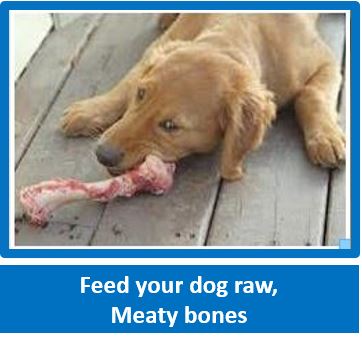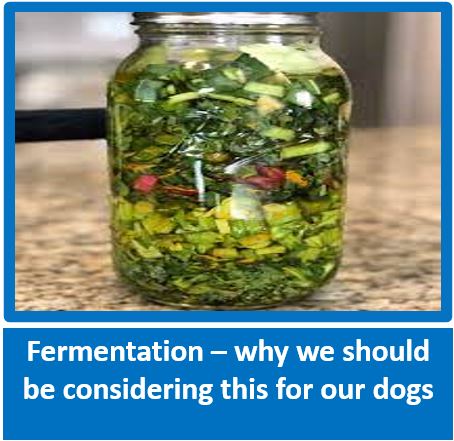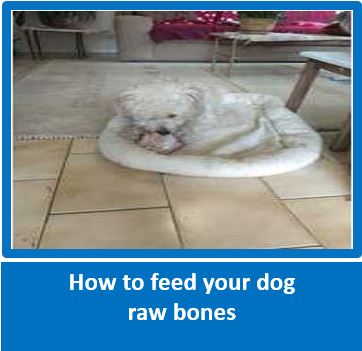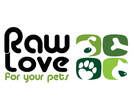
The majority of dogs tend to have reduced (or nil) gas when fed a top quality raw dog food. An additional benefit is that as the food is readily absorbed into the body, stools tend to be smaller and harder (this also helps to prevent anal gland problems) and hardly any odour. At Raw Love for Pets, our food is of the highest quality – the protein in our food is all free-range, and we are registered with the Dept of Health. We get the veggies, fruit & supplements from the same shops & farms where we buy our own supplies, including health shops and organic outlets – as an extra bonus for your dog, we use the fermentation process on veggies and fruit to make them more like a dog would eat in the wild. Raw diet improves the immune system and also assists with multiple health challenges. www.rawlovepets.co.za
Why Does My Dog... Pass So Much Gas?
www.vetstreet.com
(One of our favourite websites - really worth a visit!)
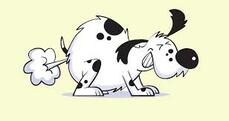
You could argue that passing gas is more of a medical issue than a canine curiosity — but it's actually both. Some dogs can be powerful gas passers, and others are just capable of intermittently clearing a room. So what makes some dogs such effective wind farms while others seem to go through life with nary a poof?
Many dogs who have chronic flatulence suffer from an intolerance to one or more components in their diets.They don't have the ability to properly digest or absorb certain ingredients, which is referred to as “dietary intolerance.” As a result, the bacteria that digests food in the intestines responds by producing excess gas.
For most dogs, however, gassiness happens only occasionally, when their intestinal bacteria is unprepared to handle a sudden onslaught of new ingredients. This is why feeding your dog leftover barbecue is considered a bad thing if he gets such rich tidbits only once in a while — and you should consider yourself lucky if all that comes of it is some nasty gas.
Other problems can also cause gas. In fact, any gastrointestinal problem that affects digestion and the absorption of nutrients — such as inflammatory bowel disease, exocrine pancreatic insufficiency and bacterial or viral enteritis — can produce some mighty putrid pet gas.
Need to Clear the Air? How to Curb Gas in Pets
Dogs and cats don't try to hold it, move to a more discreet area or blame it on their human family members. It's usually no secret when a furry friend passes gas and commits a four-pawed faux pas. And they certainly don't giggle with embarrassment or blush afterward. After all, intestinal gas is just a natural part of digestion.
While dogs seem to be the main offenders, cats are also prone to flatulence: They produce less gas, and their tendency to keep their distance makes their gassiness less noticeable. Plus, there's a sizable, auditory and olfactory difference between a flatulent 10-pound feline and a gassy 120-pound Great Dane.
While dogs seem to be the main offenders, cats are also prone to flatulence: They produce less gas, and their tendency to keep their distance makes their gassiness less noticeable. Plus, there's a sizable, auditory and olfactory difference between a flatulent 10-pound feline and a gassy 120-pound Great Dane.
If you are like most people, you'd like to find ways to wind down the passing of wind. Here are a few tips:
1. Wind Walking
Exercise helps move everything along the digestive tract and out the back door. Just remember to stay upwind and pick up after your pet.
2. Watch What You Feed Your Pet
Consider a change of diet if problems persist. Gas is a normal byproduct of digestion, but if your pet is gassy as a blimp, his diet may need a few adjustments. Talk to your veterinarian about your pet's regular meals and any snacks he regularly enjoys (with and without your permission).
For cats, milk may be an issue. While many cats may enjoy it, others don't digest it well. To see if your cat is among the offenders, stop the dairy for a bit and see if it helps.
3. Screen Your Supplements
Supplements are a mixed bag: Some may increase gas, while others may aid digestion. Again, your veterinarian can help you sort out the pros and cons. One supplement that often helps is the introduction of beneficial bacteria called probiotics that aid with digestion.
4. Fast Eaters and Short Faces Mean More Gas
Wolfers swallow air when they inhale their food and they often overeat, which backs up the digestive system. Pets with short noses — Pugs and Bulldogs, for example — are not designed for this type of intake. The result of swallowed air mixed with excess fermentation is belching, flatulence or both. Several companies make bowls designed to slow gulpers. You can also toss the bowl and feed from food puzzles — toys that make a pet work to get food a little bit at a time.
Some veterinarians swear by a product called CurTail. Similar to Beano, a product for people, this anti-gas product contains an enzyme that helps break down food, so that it can be digested more fully with more internal combustion and less, shall we say, external combustion. Ask you veterinary team what they think.
5. Make Sure Gas Leaks Aren't Medical Issues
While we sometimes laugh when the dog passes gas, top veterinarians caution that peculiar, persistent smells may contain more than meets the nose. Farts are funny. Underlying medical problems aren't as amusing. That means that if the situation is beyond the occasional toot session, the odors are especially noxious — yes, I realize it's relative — and the strategies I've shared seem not to help at all, you need to take your pet to see someone. In other words, if you really want to clear the air, see your veterinarian.
1. Wind Walking
Exercise helps move everything along the digestive tract and out the back door. Just remember to stay upwind and pick up after your pet.
2. Watch What You Feed Your Pet
Consider a change of diet if problems persist. Gas is a normal byproduct of digestion, but if your pet is gassy as a blimp, his diet may need a few adjustments. Talk to your veterinarian about your pet's regular meals and any snacks he regularly enjoys (with and without your permission).
For cats, milk may be an issue. While many cats may enjoy it, others don't digest it well. To see if your cat is among the offenders, stop the dairy for a bit and see if it helps.
3. Screen Your Supplements
Supplements are a mixed bag: Some may increase gas, while others may aid digestion. Again, your veterinarian can help you sort out the pros and cons. One supplement that often helps is the introduction of beneficial bacteria called probiotics that aid with digestion.
4. Fast Eaters and Short Faces Mean More Gas
Wolfers swallow air when they inhale their food and they often overeat, which backs up the digestive system. Pets with short noses — Pugs and Bulldogs, for example — are not designed for this type of intake. The result of swallowed air mixed with excess fermentation is belching, flatulence or both. Several companies make bowls designed to slow gulpers. You can also toss the bowl and feed from food puzzles — toys that make a pet work to get food a little bit at a time.
Some veterinarians swear by a product called CurTail. Similar to Beano, a product for people, this anti-gas product contains an enzyme that helps break down food, so that it can be digested more fully with more internal combustion and less, shall we say, external combustion. Ask you veterinary team what they think.
5. Make Sure Gas Leaks Aren't Medical Issues
While we sometimes laugh when the dog passes gas, top veterinarians caution that peculiar, persistent smells may contain more than meets the nose. Farts are funny. Underlying medical problems aren't as amusing. That means that if the situation is beyond the occasional toot session, the odors are especially noxious — yes, I realize it's relative — and the strategies I've shared seem not to help at all, you need to take your pet to see someone. In other words, if you really want to clear the air, see your veterinarian.


